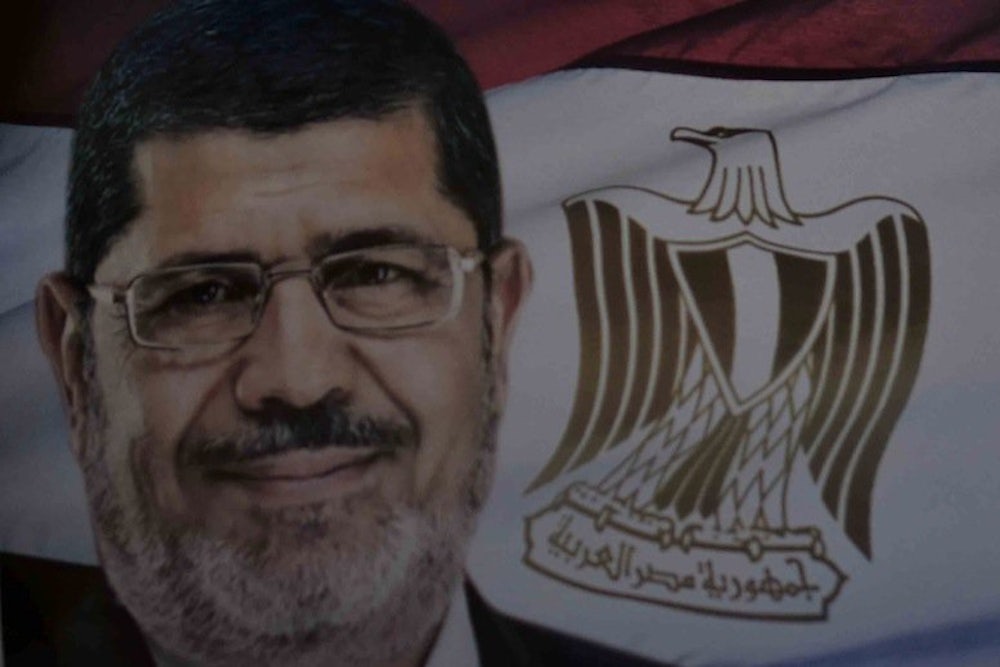It’s not often that Saudi Arabia and the United Arab Emirates openly defy the United States on an issue that truly matters to the White House. But that’s exactly what happened when the two pledged $12 billion to Egypt in July. Not only was it the size of the package—it’s four times the combined aid provided by the United States and Europe to Egypt—but also the apparent intent. The timing and the size of the package certainly makes it look as if it was meant to help the Egyptian generals exterminate the Muslim Brotherhood—and, in effect, destroy the first and only democratically-elected government in Egypt’s history. Why would the Saudis and Emiratis do it now, and especially when the Middle East is already spinning out of control? Don’t they need the goodwill of the West?
Let me stick with Saudi Arabia for an explanation. Although Saudi Arabia spends 9.1 percent of its GDP on its military and has an active duty armed force of 200,000, the fact is it’s always depended more on alliances for its national security than it has military force. From the moment Franklin Roosevelt sat down with King Ibn Sa’ud on the deck of the USS Quincy in 1945, the United States has been a constant and vital ally for the Kingdom. Even when the United States took up positions against it, Saudi Arabia never let the relationship go.
While Egypt doesn’t carry the international weight of the United States, its generals have been an equally vital ally for the Kingdom. The list of favors they’ve accorded the Saudis is too long to include here, but suffice it to say that when in the eighties Saudi Arabia needed weapons for Afghanistan, the Egyptian generals didn’t think twice before starting to load up the planes. But most recently there was one service in particular that King Abdullah won’t forget. In 2003, Egyptian President Hosni Mubarak (the former commander of the air force) helped break up a hare-brained Qaddafi scheme to assassinate Abdullah when he was crown prince and de facto king. An Egyptian with close ties to the Saudis told me that to this day Abdullah believes that the Egyptian generals helped save his life. Abdullah’s connection with Egypt’s then is very personal.
There’s also the question of Egypt’s fate and influence in the region. A contact close to Abdullah’s inner circle told me that "Abdullah had early on realized that the Egyptian Muslim Brotherhood was incapable of ruling Egypt, and the chances of its slipping into chaos and anarchy à la Libya were all but certain. The military, being the only enduring institution in Egypt, alone was capable of heading it off."
Egypt aside, Saudi Arabia has never looked benignly on the Muslim Brotherhood, and, in particular, its position on the political role of Islam. When King Abdullah’s father Ibn Sa’ud founded Saudi Arabia in 1932, he came to a non-negotiable agreement with the Wahhabi religious establishment that, in return for allowing it control of the mosques, culture, and education, they would never go near core political issues, such as royal succession, foreign policy, and the armed forces. It’s a deal that’s been more or less respected for the last 80 years.
On the other hand, a core tenet of the Muslim Brotherhood is that there can be no separation between church and state. The Brotherhood’s nonnegotiable demand is that they get both the pulpit and the crown. The implication then is that the Al Sa’ud are illegitimate rulers of Saudi Arabia. No wonder the Saudis were more than happy to pay the Egyptian generals to do their dirty work.
The Saudis watched in mute horror as Egypt’s Arab Spring led to the legitimization of the Muslim Brotherhood in voting booths. They could only ask whether their turn was next. A source close to the Saudis told me, “The royal family looks at the Muslim Brotherhood as hands down the most serious threat to its existence. Its Shia minority doesn’t come even close.”
In fact, there’s been anecdotal evidence of popular support for the Brotherhood, at least in social media. But of more immediate concern to the Saudis are the two million Egyptian guest workers residing in the Kingdom. They’re poor and susceptible to the Muslim Brotherhood’s message. Adding to Saudi anxiety, the bulk of them live in the Hijaz, the home to Mecca and Medina, Islam’s two holy sites. There’s been no evidence the Saudis are on the verge of losing them. But in the long run who could tell what problems a triumphant Muslim Brotherhood in Egypt would have caused for the Saudi royal family.
Robert Baer, a former CIA case officer in the Middle East, has also written for TIME, Vanity Fair, and the Wall Street Journal.
